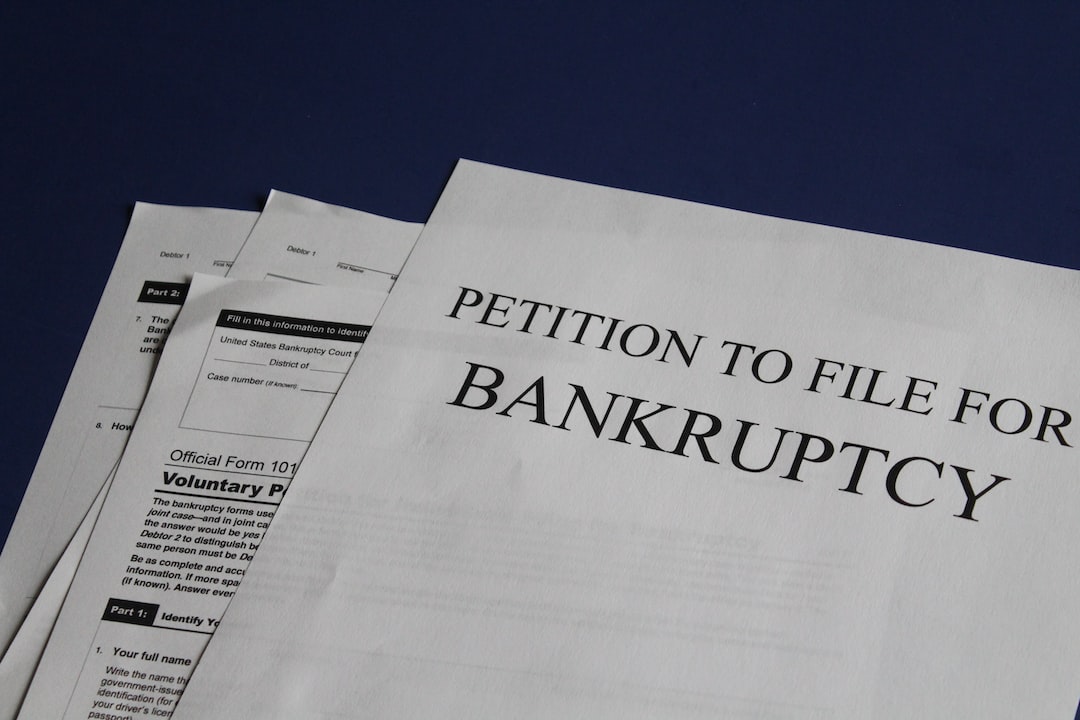Understanding the Role of a Lawyer in Bankruptcy Proceedings
Your bankruptcy attorney should help you prepare all official forms required by the court. This includes schedules describing your property, income, expenses, and debt.

Legal Representation
A lawyer for bankruptcy is essential to help you navigate the legal aspects of filing. They will review your paperwork, including income, expense, debt, and asset information, and use it to complete the official forms by local rules and bankruptcy law. They will also represent you at meetings with creditors and trustees and attend any other hearings that might occur.
A good bankruptcy lawyer will be familiar with federal bankruptcy laws and the nuances of individual state codes, particularly those about property rights and liens. They should also be familiar with business practices and standards, as many bankruptcy cases involve businesses going through court proceedings to liquidate or restructure assets.
Bankruptcy attorneys often work hourly and charge a fee for each hour they spend working on your case. You should know the rates an attorney charges before signing a representation agreement. For instance, an hourly rate may include a base rate to which the attorney adds extra amounts based on specific circumstances in your case.
Document Preparation
The process of filing for bankruptcy involves completing a lot of paperwork. A bankruptcy attorney will use your financial information to prepare the official forms and review them with you to ensure everything is accurate.
They will also file these documents on your behalf and ensure they meet all local rules and deadlines. They will be a key resource in helping you navigate the confusing bureaucracy of the federal court system.
A bankruptcy lawyer will also help you make critical decisions before bankruptcy begins. For example, they will advise you of your options for reducing your debt load by liquidating assets or working out a repayment plan with creditors.
In addition, they will advise you of the costs associated with your bankruptcy, including the filing fee and attorneys’ fees. They will also help you select a trustee who is qualified and affordable. They will also assist you with any other hearings during the bankruptcy procedure, such as a meeting of creditors.
Meetings with Creditors
All bankruptcy proceedings require meetings that must be attended, including the meeting of creditors (also called the 341 Meeting). These meetings are Federally mandated by Chapter 7 and Chapter 13 of the Bankruptcy Code. They allow the trustee or a representative of the United States Trustee to review your bankruptcy petition and schedules with you and allow creditors to ask questions under oath about assets, debts, transfers, and payments made since your bankruptcy filing.
A good bankruptcy attorney can predict the direction of questions at the meeting and help prepare you for the meeting ahead of time. Creditors will typically only question you about issues specific to your case.
Often, a client may want a next friend, such as a spouse or child, to attend the meeting of creditors on their behalf. This can be done with a simple Motion filed in court. However, the person attending must have the legal authority to do so.
Court Hearings
As a legal practitioner, your bankruptcy attorney will guide you through the court process and defend your rights. They will take a critical look at your assets and debts and help you decide whether you would benefit from the full benefits of bankruptcy or if you could work with creditors to reduce or forgive the debt.
You may have to attend meetings and other hearings depending on your case type. For example, the meeting of creditors (Section 341) is a mandatory hearing where you must disclose your income, expenses, assets, and debts to the bankruptcy trustee.
Large business defaults are typically more complicated and require teams of attorneys to comb through financial records, identify liens, negotiate settlements, and make necessary filings. The team at Le & Tran has helped businesses prepare for Chapter 11 and navigate the complexities of bankruptcy law to protect their interests and get back on their feet.


